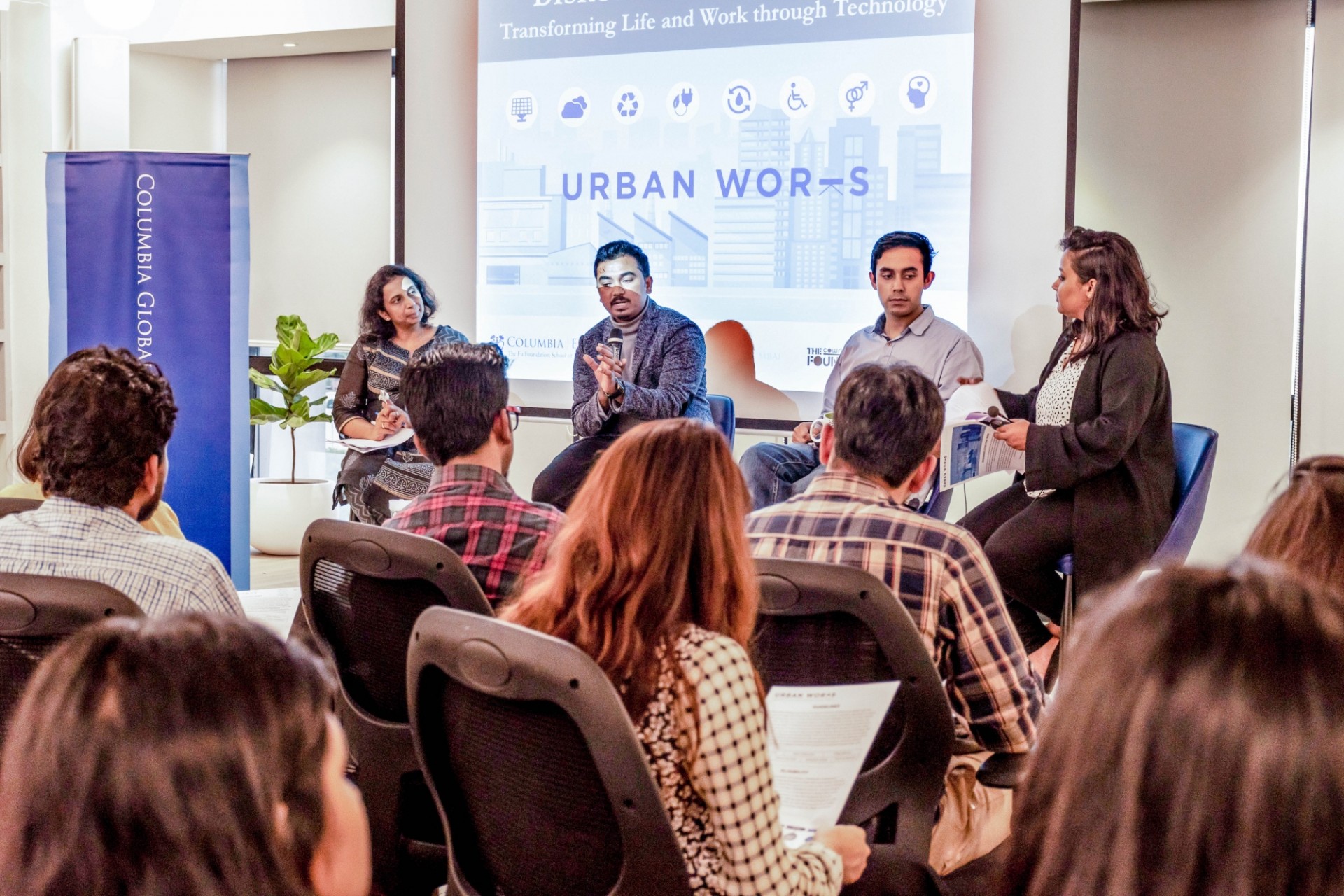Placing Value over Valuation

As part of its Urban Works Innovation Challenge 2019-2020, Columbia Global Centers | Mumbai organized a panel discussion in Bengaluru on October 15, 2019. The panel, featuring distinguished startup founders and domain experts, was moderated by Nruthya Madappa, Managing Partner at The CoWrks Foundry.
India’s startup success stories are mostly of founders solving local challenges using tech that exists elsewhere in the world, remarked Professor Srivardhini Jha, Associate Professor at the Indian Institute of Management, who painted a vivid picture of how entrepreneurship has been practiced in India. According to her, startups here display a planning approach that speaks of extreme caution as opposed to the lean startup methodology of moving fast and creating a minimum viable product with minimal resources. She noted, however, that things are evolving now, with an increasing number of Indian founders pushing the envelope of technology to plug institutional voids in the country.
Filling an innovation void in the sustainability space was Mr. Gokul Shrinivas, Founder/CEO of Minion Labs, who shared his process of creating a unique value proposition of saving appliance-level energy in an industrial or commercial establishment by using device noise signatures. The third panelist, Mr. Manik Mehta, CEO/Co-founder of Safer Infra and Founder of Leaf Wearables, spoke of the need for a better way of responding to city-level safety issues including medical emergencies and women’s safety.
The panelists agreed on several aspects: there is too much focus on valuations and fundraising in India, that startups who focus only on product implementation and not enough on customer discovery are almost always likely to fail, and that on-ground data is the basis of developing a solution to address challenging ecosystem-level painpoints. Mr. Shrinivas and Mr. Mehta highlighted how arriving at this point in their respective entrepreneurial journeys has required dealing with regulatory hurdles, developing contrarian thinking, and an enormous amount of self-belief and persistence.
While the challenges of starting up are plenty, the reason why these entrepreneurs have chosen to do what they do is because they believe in their mission and want to stick to it for the next 10-15 years, without simply ‘selling off’ i.e. getting acquired. Mr. Shrinivas explained how he had to pivot his startup’s business model to a SaaS-based one because of diminishing lifetime value from a product sales-only model in the domain of energy savings. Mr. Mehta, who in his previous startup, Leaf Wearables, built and sold more than 20,000 devices for public safety and women’s safety, quickly realized that wearables are not the complete solution. He needed to create a team of first responders who can quickly address an emergency in a city or peri-urban locality, especially if the customer didn’t have their friends or family around.
The insights offered by the founders stemmed from practice of being receptive to market demand and creating value for the customer. Professor Jha had spoken of putting value over valuation. Perhaps she was referring to examples such as these, to inspire a new generation of founders (in the audience) who will go on to solve some of the biggest challenges faced by 21st century urban India.